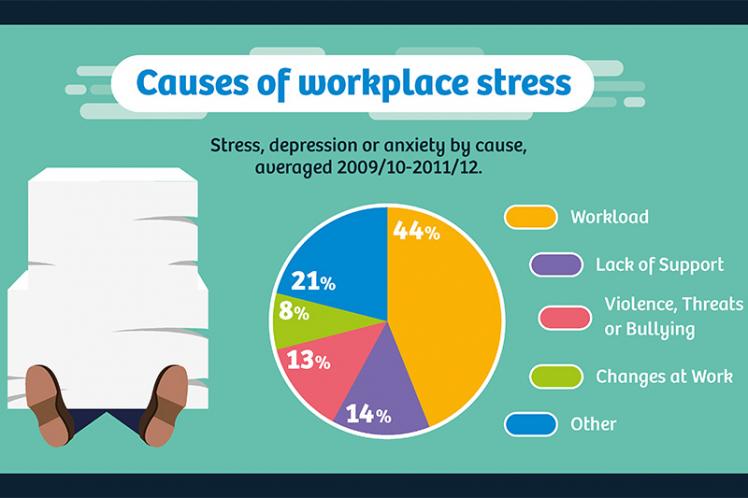Combating Workplace Stress [Infographic]

The following is adapted from Your Health at Work (Kogan Page 2018) which is written by experts in the field and supported by the TUC and its member unions, who fought for many of the health rights that workers enjoy today.
We all go through stressful situations at work, but what if you find yourself regularly experiencing long stretches of work-related stress?
Prolonged periods of stress can adversely affect the way you feel, your behaviour and your health, which is why it's important to identify the causes and symptoms early. Common symptoms include:
- Arriving to work late
- Struggling to focus
- Eating more or less than usual
- Being more prone to mistakes/accidents
- Having difficulty sleeping
At work, it is vital that your employer addresses stress by tackling the root causes of any stress that your work is causing or exacerbating, not just the symptoms. Coping techniques have their place but they are not an alternative to addressing how you work.
526,000 workers suffered from work-related stress, depression or anxiety in 2016/17, with the top three industries with higher than average rates of stress, depression or anxiety being Human health and social work, Public administration and defence, and education.
The biggest cause of workplace stress is the workload, followed by a lack of support and violence, threats or bullying.
Your employer has a general duty under the HSW Act 1974 to look after your health and ensure your safety at work. You should consider speaking to your manager or HR representative about how you can effectively manage your work-related stress, as well as your GP.






